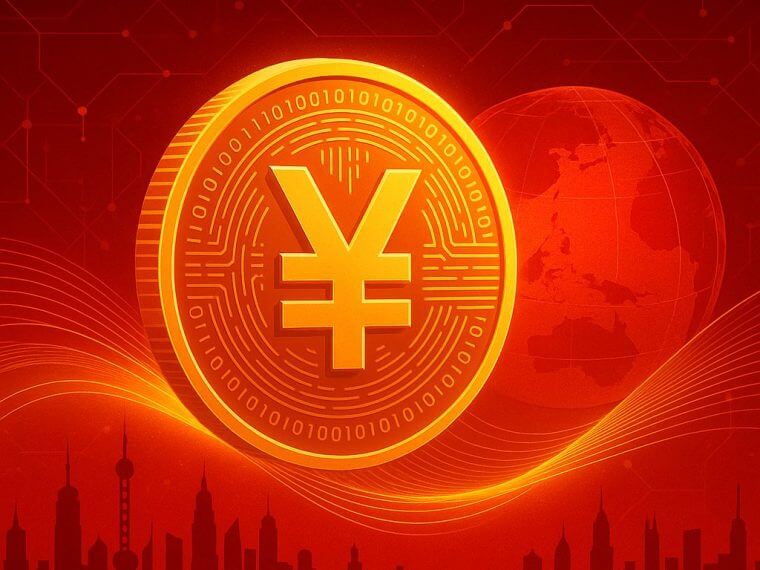South Korean Stablecoin Bill: A Pivotal Move for Crypto Stability
BitcoinWorld
South Korean Stablecoin Bill: A Pivotal Move for Crypto Stability
The world of digital assets is constantly evolving, and regulatory frameworks are catching up. A significant development is unfolding in Asia, where a groundbreaking South Korean stablecoin bill has just been proposed. This legislative effort aims to bring much-needed clarity and stability to the rapidly growing stablecoin market, impacting both domestic and international players.
What Does the South Korean Stablecoin Bill Propose?
South Korean lawmaker Kim Hyun-jung of the ruling Democratic Party has put forward the nation’s first comprehensive bill specifically targeting stablecoins. This isn’t just a minor tweak; it’s a foundational step towards formal oversight for value-stabilized digital assets. The core idea is to foster healthy market growth while robustly protecting consumers.
- Minimum Capital Requirement: Issuers would need to hold at least 5 billion won (approximately $3.6 million) in capital. This significant barrier aims to ensure only serious, well-capitalized entities can operate.
- Sound Business Plan: Companies must present a clear, viable business strategy to the authorities.
- Qualified Staff & Facilities: Issuers need to demonstrate they have the necessary human resources and infrastructure to manage stablecoin operations effectively.
- FSC Approval: Obtaining approval from the Financial Services Commission (FSC) would become mandatory, bringing stablecoin issuance under strict regulatory scrutiny.
- Foreign Stablecoin Registration: Even stablecoins issued abroad would be required to register with the FSC before they can be distributed within South Korea. This provision extends the bill’s reach beyond national borders.
Why is This Regulation Crucial for Stablecoins?
You might wonder, why now? The push for this South Korean stablecoin bill stems from a clear desire to prevent financial instability and safeguard investors. Stablecoins, designed to maintain a consistent value, are vital bridges between traditional finance and the volatile crypto world. However, without proper oversight, they can pose risks, as seen in past market events.
This proposed legislation reflects a global trend towards regulating digital assets. By setting clear rules, South Korea aims to:
- Enhance Consumer Protection: Mandating capital and approval processes helps ensure that stablecoin issuers are legitimate and capable of meeting their obligations.
- Promote Market Integrity: Formal oversight reduces the risk of fraud and market manipulation, building trust among users and institutions.
- Foster Innovation Responsibly: A regulated environment can encourage innovation by providing a secure framework for businesses to operate within, rather than stifling it.
What Impact Will the South Korean Stablecoin Bill Have?
The implications of this South Korean stablecoin bill are far-reaching. For existing stablecoin issuers, particularly smaller ones, meeting the 5 billion won capital requirement could be a significant challenge. However, for larger, well-established entities, it could solidify their position by weeding out less compliant competitors.
This move could also set a precedent for other nations in Asia and beyond, influencing how they approach digital asset regulation. South Korea is demonstrating a proactive stance, moving beyond simple warnings to implement concrete legislative measures. This kind of robust framework is essential for the long-term viability and mainstream adoption of stablecoins.
In conclusion, the proposed South Korean stablecoin bill represents a monumental step towards creating a safer, more transparent, and more stable digital asset ecosystem. It underscores the growing recognition among global policymakers that digital currencies, particularly stablecoins, require careful integration into existing financial frameworks for the benefit of all.
Frequently Asked Questions (FAQs)
Q1: What is a stablecoin?
A stablecoin is a type of cryptocurrency designed to maintain a stable value, typically by being pegged to a fiat currency like the US dollar, or to a commodity like gold.
Q2: Who proposed the new stablecoin bill in South Korea?
The bill was proposed by South Korean lawmaker Kim Hyun-jung of the ruling Democratic Party.
Q3: What is the minimum capital requirement for stablecoin issuers under this bill?
The proposed bill requires stablecoin issuers to hold at least 5 billion won, which is approximately $3.6 million.
Q4: Will foreign-issued stablecoins be affected by this South Korean stablecoin bill?
Yes, the proposal includes provisions requiring foreign-issued stablecoins to register with the Financial Services Commission before being distributed domestically in South Korea.
Did you find this article insightful? Share it with your friends and colleagues on social media to keep them informed about the latest developments in crypto regulation!
To learn more about the latest crypto market trends, explore our article on key developments shaping stablecoin regulation and its impact on institutional adoption.
This post South Korean Stablecoin Bill: A Pivotal Move for Crypto Stability first appeared on BitcoinWorld and is written by Editorial Team
You May Also Like

Impersonating UK Police in Crypto Scam, Scammer Steals $2.8M Bitcoin from Victim

Story and World cooperate to promote on-chain IP verification to deal with AI content infringement
